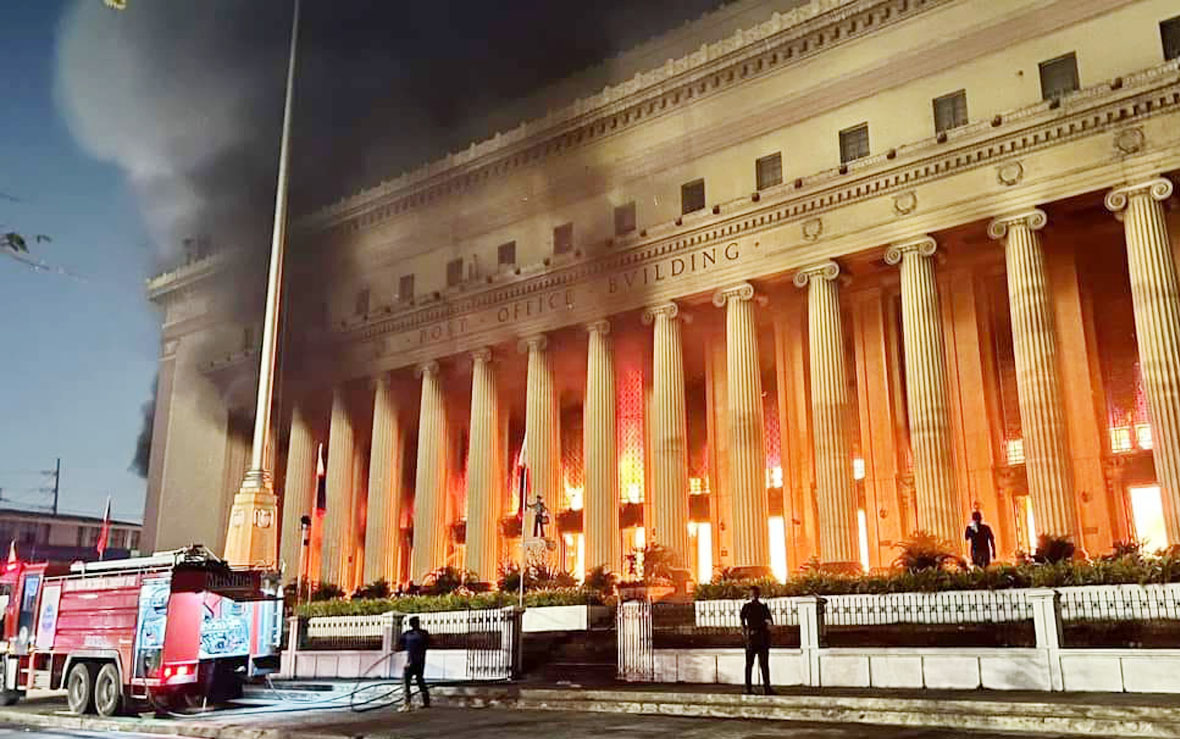WHEN a fire broke out in the early morning of May 27, 2019, Delia Enverzo, a resident of Sitio Pook Malinis, Quezon City, thought she had lost everything. The blaze, which destroyed much of her neighborhood, spread very quickly across the lightly-built houses rendering the residents unable to save much of their belongings.
“It happened so fast, we were caught off guard. The only things we were able to save are the clothes we had on us and some important documents,” said Mrs. Enverzo while recalling her ordeal on that fateful day.
At 60 years old, Delia and her husband, lived most of their adult lives in the settlements inside the University of the Philippines-Diliman campus. Classified as informal settlers, they have learned to live with the threat of being evicted from their homes at any moment. This happened several times in the past where they were forced to transfer and relocate to a new location. With every demolition, they have become ever mindful of the reality that they might be once again displaced by events beyond their control.
“Life here is very hard and full of uncertainty. We do not own this land but this is better than going home to Apayao where security, due to lawless elements, is always an issue.”
This declaration speaks volume about the everyday reality of people displaced by armed conflict and natural disasters. Forced out of their homes and their lands, they relocate to the cities in the hope that they will find safety and better lives. They will soon realize that the big city’s promise of a greener pasture is no more than a phantom – an illusion of grandeur peddled by those who went ahead of them.
To the Enverzo couple, the options are very limited: Go back to their province to tend their land in the mountains and gamble their lives in the hands of insurgents, or they can stay in the city and risk their limbs while trying to eke out a living. They chose the latter.
For those who grew up in the city, this is a curious choice. After all, the chance to relocate to the provinces -an opportunity to live a life away from the hustle and bustle of the metropolis- is indeed very enticing. But for those who have lived through harsh and unforgiving poverty in far away rice fields of the country, the city’s promise of a better life is worthy of holding on to a little while longer.
To support their everyday needs, the couple established a small mamihan (noodle stand) in 1979. This is when their son is only about nine years old. The shop became popular to those who are looking for a quick fix for their hungry stomachs at an affordable price. Over the years, their venture attracted loyal patrons who helped sustain their business operation.
“We tend to our shop ourselves. Not a very easy task considering our advance ages, but we get by just fine. We wake up at 4 in the morning to buy supplies and prepare the meat for the following day. We do this routinely and with each other’s support, I can say that it has been a successful business.”
Today, their son is in his forties and with a child of his own. It is, therefore, no surprise that when the fire razed their house, they felt like the heaven downed on them.
“It’s really very hard for us to see our house in flames. That house is our life, our livelihood. But we cannot give up. We have to restart from somewhere; we have to rebuild,” shared Delia when asked about their plans after the fire.
True to their enterprising spirit, the Enverzo couple did not wait for anyone’s help to restart their only source of income. With all their money gone, and without any savings, the couple turned to informal lenders for financing. They were able to secure money to buy some necessary equipment but this is not enough to return to their pre-disaster operation.
When the DTI team arrived to asses the needs of the victims, the couple informed them that they are already back in operation albeit in a limited manner.
“The day after the fire, my husband immediately sought the assistance of a lender so that we can buy new equipment for our shop. The interest is quite high but we have no other choice. While we have restarted our operation, we are still very much wanting in terms of equipment.”
The story of Delia Enverzo is just one of the thousand stories of displacement and loss. In Barangay UP campus alone, 3 more microentrepreneurs suffered the same fate. In response, the DTI initiated a program to help micro, small, and medium entrepreneurs (MSMEs) return to a state of normalcy after a calamity. This involves the provision of livelihood starter kits, grant-in-kind assistance that gives beneficiaries a chance to redeem themselves from poverty.
“The displacement caused by demolition is nothing compared to the devastation caused by the fire. We thought we have lost everything and we have very little expectation that someone would help us rebuild. But DTI came with these livelihood kits, we can start over with these,” shared Delia.




Comments are closed.